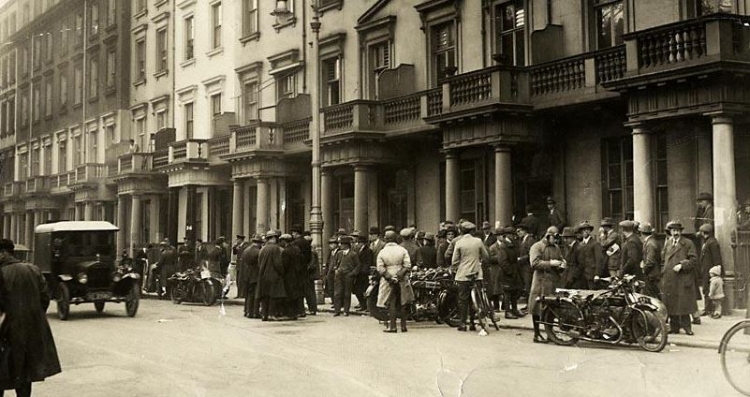This year, we celebrate our 150th birthday and with it, a century and a half of working together to create safer workplaces and fairer wages. But who and what was behind that first Congress, all those years ago – and why?
It all started with a simple question,
asked by Samuel Caldwell Nicholson, a typesetter and union officer living in Manchester: “Why not have a congress of our own?”
By the mid-1800s, every industry worth its salt had its own union,
and there were several regional societies representing local unions. A few attempts had been made to establish a national collective – such as the National Association of United Trades for the Protection of Labour – but nothing had stuck.
Samuel was treasurer of the Manchester Typographical Society.
One day, a fellow unionist returned from making his union’s case at the Congress of the National Association for the Promotion of Social Science, and complained they weren’t really listening. With hindsight, Sam’s idea seems so obvious: why appeal to other congresses, when we could have a congress of our very own?
Samuel and William Henry Wood, another union officer, lost no time in turning their idea into reality.
In February 1868, they sent letters to trade councils and unions around the country, inviting them to a Congress on May 4th. It was later postponed to June 2nd, “in order to afford sufficient time for all the various trade organisations to send delegates and prepare papers”.
The first Trade Union Congress took place at the Mechanics’ Institute in Manchester,
from June 2nd to June 6th, 1868. In total, 34 delegates attended, representing 118,000 union members. Unfortunately, the last minute reschedule created a calendar clash for Samuel, who instead went to the Annual Moveable Delegation of the Order of Druids, of which he was general secretary!

But what did that first Trades Union Congress actually achieve?
As well as debating topics such as the effect of trades unions on foreign competition, and regulation of working hours, the Congress also passed its first and most important resolution: “that it is highly desirable that the trades of the United Kingdom should hold an annual congress, for the purpose of bringing the trades into closer alliance, and to take action in all Parliamentary matters pertaining to the general interests of the working classes.”
Which is exactly what happened.
The second TUC meeting took place in 1869 at the Oddfellows Hall in Birmingham, where delegates discussed the eight-hour working day, election of working people to parliament and the issue of free education. Over the next few decades, the TUC grew in size, experience and power to become a formidable campaigning and influencing body.